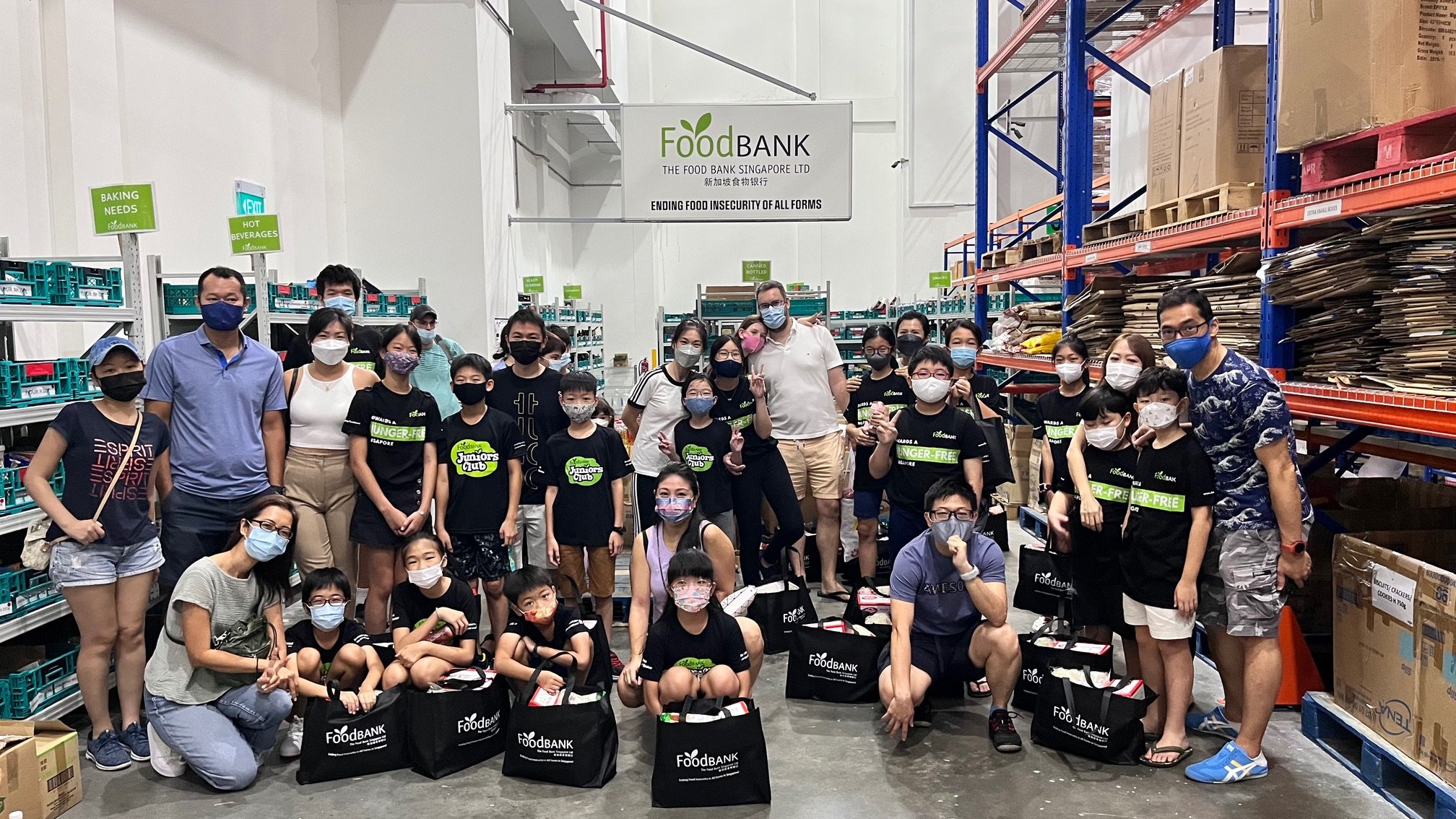Nichol and Nicholas Ng: Care For The Hungry
Siblings Nichol and Nicholas Ng, founders of Food Bank Singapore, have always been surrounded by food since they were born. As kids, they saw their father, uncles and aunt hard at work, each helping to grow the family food distribution business that their grandfather started in the 1930s.
The apple doesn’t fall far from the tree. Nichol and Nicholas chose to build a career in the food industry. As Co-CEOs of X-Inc, the parent company under which a group of food-related businesses operate (including FoodXervices, GroXers and Xpace), they oversee about 200 employees, more than 5,000 products and 5,000 customers to better streamline the food ecosystem from food service and retail to logistics and property.
But the one closest to their hearts is Food Bank Singapore (FBSG), which they established in 2012, modelling it after its western predecessors. They’ve been on a mission to reduce, redistribute and recycle food waste since.
“Working with the industry, we realised that there was a lot of excess food, as in food wastage. These are still edible food but they’re being thrown away,” explains Nichol, who joined her father as an understudy in 2002.
“We felt there’s something else we can do for society. Setting up Food Bank Singapore was a natural progression that led us to this path. On the one hand, there’s so much excess food. On the other hand, there are still hungry people. We realised something needs to be done to match these two together. There is an increasing need to help people, to provide food for the underprivileged in Singapore,” she adds.
“Food waste” refers to edible food that is intended for human consumption, but instead gets discarded or expires.
“Food is a basic human right. In a first world country like Singapore, no one should be deprived of the ability to feed themselves,” says Nichol.
With no poverty line and minimum wage in Singapore, it can be challenging to measure and identify people who struggle to make ends meet and require the most basic needs like food and shelter.
Ranked first in the world by the Economist Intelligence Unit as the most food-secure nation on the Global Food Security Index in 2019, it may come as a surprise to many that even in an affluent country like Singapore, food insecurity is still a concern.
In 2019 alone, Singapore generated around 744 million kg of food waste, a 23% increase from the previous year, and about half of the food waste generated nationwide is from households. That is equivalent to two bowls of rice per person per day, or around 51,000 double decker buses. (source: Towards Zero Waste)
“We’re relatively comfortable in Singapore, yet we have poverty or food insecurity within us. There are people struggling just to put food on the table,” says Nichol.
FBSG bridges the gap between the problem of wastage and feeding those in need by appealing to food companies and home consumers to donate their excess food regardless if they are close to expiry dates or not, as long as they don’t have use for the food anymore. It then redirects collected food to feed underprivileged families.
“We learnt that people prefer cooked food, want to choose their own food, and want to eat at their own time. With the lack of feeding programmes that meet such needs, we decided to change the way we feed Singapore,” says Nichol. FBSG has developed several solutions to change the way we feed Singapore.
Bank Card Programme. A smart wallet pre-loaded with credits every month in which beneficiaries can redeem meals of their choice from participating F&B outlets and Food Bank’s Food Pantry at any time. Beneficiaries only need to tap the Bank Card Readers to make the food redemption. A contribution of $100 a month provides aid for meals and essentials to a beneficiary, and there are some 10,000 beneficiaries who could use the support.
Feed The City Tap A Meal. An initiative that aims to empower beneficiaries the freedom to choose when and what they want to eat through the Bank Card Programme.
Food Pantry. A 24/7 automated platform that serves to dispense emergency food aid, both non-perishable and cooked food, to those in need at various HDB estates.
FBSG does not hand out food directly to the end beneficiaries. It collects and allocates food for distribution through its 360 (and counting) member-beneficiaries that include family service centres, soup kitchens, voluntary welfare organisations, various types of homes, religious establishments and schools with children from low-income families.
FBSG sources and rescues more than 800,000 kilograms of food annually for its network of beneficiary organisations with the assistance of hundreds of volunteers and collaborators. The food distributed is vital for various food relief efforts such as community pantries, emergency food rations delivery and daily meal programmes.
“Many times good food gets dumped for a multitude of reasons before it is even expired. In this way, we are leveraging the excess that will become waste if we don't salvage it. Rather than asking donors to just run to the nearest supermarket to purchase the goods,” says Nicholas.
The siblings’ mom is a big influence on their philanthropic work. The elder Ng used to be active in community service like Lions (welfare for the elderly). They would tag along and help in whatever way they could. Being brought up doing charity and watching their father run the family business certainly made an impact on them.
Nichol with her kids at FBSG Food Pantry
“Charity starts from home. Definitely, we encourage our children to be a part of the initiative. We genuinely believe that advocacy needs to start from young, which is why we initiated the Juniors Club to target those aged 5-12 and also to give these younger children an opportunity to volunteer… hence spreading the message beyond our own households,” according to Nichol.
“We encourage you to go to your kitchen. Go through your cupboards. There’s probably something somewhere behind either someone gave or brought over but you’ll never eat or are going to expire soon. We accept things like that because we don’t want people to spend extra money. We’re talking about everyday people. They all want to do something good but if they have to spend extra money they will think twice. So if you can just reduce your own food wastage and donate it you’re doing something good,” Nicholas says.
No one should have to go hungry, especially in a first-world country like Singapore. But the sad reality is there is no one-size-fits-all solution to end hunger. And we can all do something to solve this persistent problem. To be a part of the solution, you can donate and/or volunteer at Food Bank Singapore. Check the links below.
Debbie | ws
Images: Food Bank Singapore | Watch: Our Foodbankers Stories
Volunteer Skills | Volunteer Time | | Juniors Club | FBSG Projects | Emails: volunteer@foodbank.sg | enquiries@foodbank.sg | Call: +65 9855 4805











